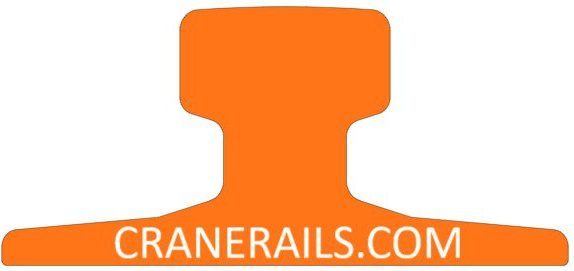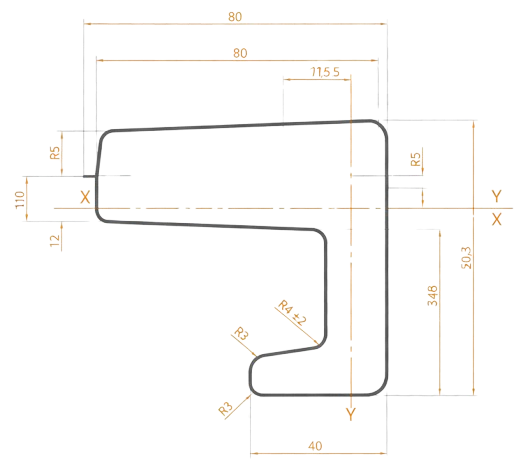UIC33 Light Rail
The UIC33 rail is a specialized light rail profile from the International Union of Railways (UIC) standards, designed for specific applications where a compact yet robust track solution is required. While not as common as heavier UIC rails (like UIC54 or UIC60), the UIC33 is tailored for systems that demand a lower profile and lighter weight without compromising essential performance. Its unique cross-section and precise dimensions make it suitable for a variety of industrial and light transport uses, providing a stable and reliable foundation for lighter wheeled vehicles and equipment.
Specifications
| Specification | Value |
| Calculated Mass | ≈33.0kg/m (Nominal) |
| Standard Length | Up to 12m (or customized) |
| Rail Height | 90.0mm (Typical) |
| Head Width | 80.0mm (Typical) |
| Base Width | 120.0mm (Typical) |
| Material Grade | Plain carbon steel (e.g., 700A, 900A) |
| Tensile Strength | ≈690−880MPa min. |
Key Features and Benefits
The UIC33 rail’s design focuses on efficiency and adaptability for its intended light-duty applications.
- Optimized Profile: The specific shape and dimensions are designed to offer a balance between strength and weight, making it an efficient choice for tracks that don’t require the full capacity of heavier mainline rails.
- Moderate Weight: Its approximate 33 kg/m mass makes it lighter than standard heavy rails, facilitating easier handling, transport, and installation while still providing ample structural integrity.
- Versatile Application: The UIC33’s characteristics allow it to be used in various settings where a robust, but not excessively heavy, rail is needed, offering flexibility in track design and construction.
- UIC Standard Compliance: Adherence to UIC standards ensures that the rail meets international quality and performance benchmarks, allowing for interoperability and consistent reliability.
Applications
The UIC33 rail is a versatile product suitable for a range of light-to-medium duty railway and industrial environments:
- Industrial Sidings and Spur Lines: Provides tracks for light freight wagons and shunting operations within factories, ports, and industrial complexes.
- Mine Railways and Tunnel Systems: Used for transport of materials and personnel in underground mining operations or construction tunnels where space and load limits apply.
- Depot and Maintenance Yards: Serves as track for rolling stock maintenance, inspection areas, and storage sidings in railway depots.
- Light Rail Transit (LRT) Systems: Can be adapted for specific sections of light rail or tramway networks where a lighter rail profile is advantageous.

